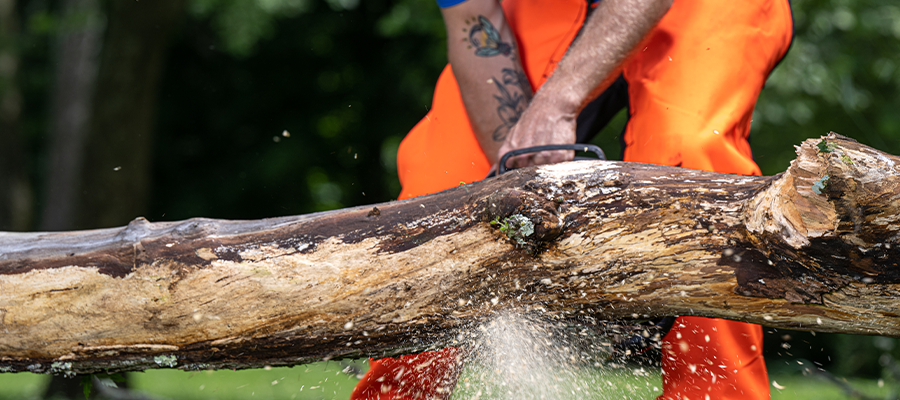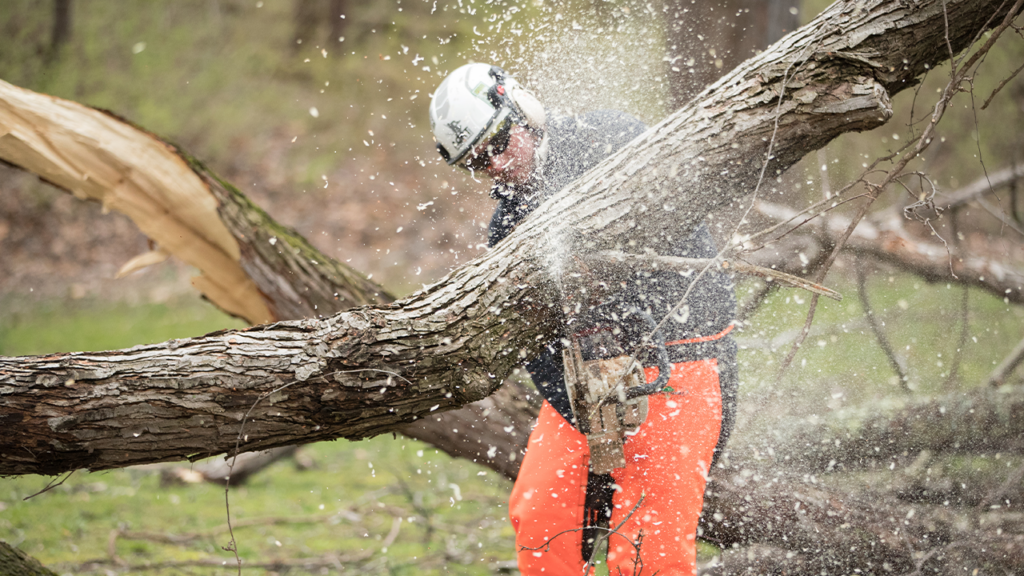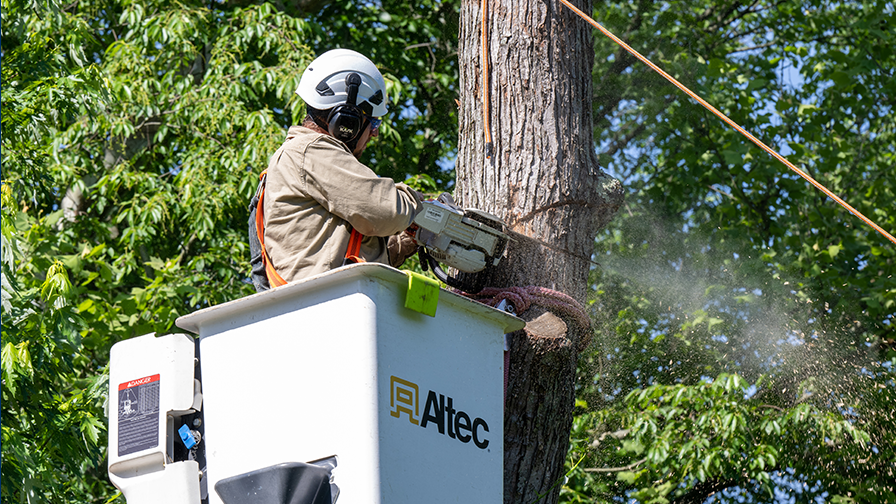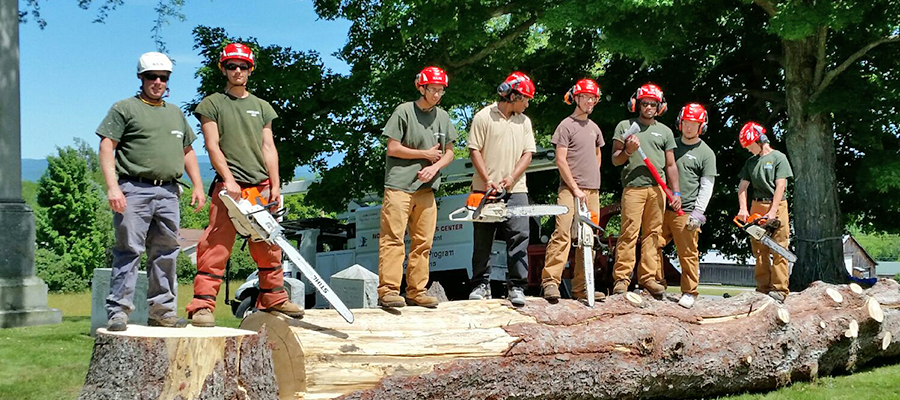Job Corps’ Impact on At-Risk Youth Through Urban Forestry
Job Corps’ Impact on At-Risk Youth Through Urban Forestry
By Jeremy Riemersma, Training Instructor, ACRT
As Job Corps marks its 60th anniversary in 2024, it’s a momentous occasion to reflect on the incredible journey of transforming the lives of countless young individuals. As an urban forestry instructor at Northland Job Corps, I have witnessed firsthand the profound impact this program has had on students, particularly through the long-standing partnership with ACRT. This collaboration has been instrumental in equipping our students with essential skills and providing invaluable community service.
A Rich History Rooted in the Civilian Conservation Corps
Job Corps’ legacy can be traced back to the Civilian Conservation Corps (CCC) of the Great Depression era. The CCC was one of President Franklin D. Roosevelt’s most successful New Deal programs, employing millions of young men in environmental projects. The CCC’s achievements, such as planting over three billion trees and developing infrastructure in national and state parks, laid the foundation for modern conservation efforts. Like the CCC, Job Corps has continued this tradition by offering at-risk youth the opportunity to acquire life skills, learn how to work cohesively, and thrive in various vocational fields.
The Role of Urban Forestry in Job Corps
The Urban Forestry program at Job Corps is more than just a vocational training initiative; it’s a comprehensive program that instills essential career success standards. These standards include communication, interpersonal skills, workplace relationships and ethics, multicultural awareness, information management, personal growth and development, independent living, and career and personal planning. These skills are critical in preparing students for successful careers and responsible adulthood.
Our program teaches students the fundamentals of urban forestry, from basic groundman duties to operating advanced machinery like bucket lifts and chippers. Safety is paramount, and students start with tasks such as job site cleanup before progressing to more complex responsibilities. This progression ensures they build the necessary physical and mental strength to perform their duties safely and effectively.
For organizations within our industry, the Job Corps program is a way to give back, invest in the future workforce, and work towards making the industry safer.
A History of Partnership and Support
For nearly two decades, ACRT has been involved with several Job Corps programs, providing not only expertise but also resources crucial to the program’s training efforts. In previous years, this partnership enabled us to conduct the Job Corps Jamboree, an event comparable to a mini-ISA Tree Climbing Competition, that tested students’ skills and resilience under pressure.
The Jamboree was more than just a competition; it was a celebration of our students’ hard work and dedication. Each center conducted its own local Jamboree to select representatives for the national event. The competition featured six events designed to challenge students’ abilities and professionalism. Employers, local officials, and the press attended, highlighting the importance of these skills in the professional world.
Building Community and Practical Skills
Over the decades, Job Corps centers across the country have provided tens of thousands of dollars in tree services to their local communities. This community outreach not only enhances students’ practical skills but also fosters positive relationships with the communities they serve.
Empowering At-Risk Youth
Job Corps focuses on empowering at-risk youth, many of whom are referred to the program by local agencies. This targeted approach ensures that those in need receive essential support, guidance, and training to transform their lives.
Job Corps offers these young individuals an opportunity to escape negative influences. The program teaches disadvantaged and at-risk youth essential life skills crucial for personal and professional success. These skills range from basic communication and interpersonal abilities to more complex competencies such as workplace relationships, ethics, and multicultural awareness.
Preparing for a Bright Future
The demand for tree-care professionals is growing, with an estimated 173,000 new jobs needing to be filled by 2028, according to American Forests. Our Urban Forestry program prepares students to meet this demand by providing industry-recognized credentials from organizations like the International Society of Arboriculture (ISA), the Professional Landcare Network (PLANET), and the North American Board of Certified Energy Practitioners (NABCEP). Students also receive training in aerial rescue, basic first aid, and CPR, ensuring they are well-prepared for their careers.
Additionally, Job Corps provides a comprehensive support system for students, including career planning, job placement assistance, housing, health and dental care, and basic living allowances. This holistic approach ensures that students are well-equipped to succeed not only in their careers but also in their personal lives.
Reflecting on 60 Years of Impact
As we celebrate Job Corps’ 60th anniversary, it’s important to recognize the impact the Job Corps program has had on over three million alumni. The Urban Forestry program, in particular, has played a significant role in this legacy. Together, we have provided students with the skills, confidence, and opportunities they need to build successful careers and contribute positively to their communities.
Looking ahead, we are committed to continuing this legacy of excellence and expanding our impact. With ongoing support from ACRT and other partners, we will strive to meet the growing demand for skilled professionals in the tree-care industry, ensuring a brighter future for our students and the communities they serve.
This article was originally published in the 2024 September/October edition of the UAA Newsline.
Related Articles

Imagine this: a storm hits overnight. By morning, trees are tangled in power lines, and the call goes out. Your line crews need to be more than ready — they need to be trained, confident, and equipped for the task. Whether your team is routinely trimming vegetation or responding to storm-related obstructions, ACRT Arborist Training’s[...]
Read More
By Kevin Myers, arborist training instructor, ACRT Arborist Training For many arborists, a chainsaw is an everyday tool. With such regular, frequent use, it can be easy to slip into complacency. Knowing and understanding chainsaw kickback can help prevent incidents or injuries. No matter how long you’ve been in the industry, remembering and following safety[...]
Read More
Prolonged use of equipment that emits noise levels above 85 decibels (dB) can cause permanent hearing damage, so it’s crucial that everyone uses proper hearing protection.
Read More
Step and touch potential refer to types of electrical hazards that can cause electrical shock injuries or electrocution. It’s crucial to consider the dangers of these hazards and take steps to prevent them from becoming emergencies. Even if you do not touch a downed power line, you can still be electrocuted or suffer an[...]
Read MoreSUBSCRIBE
Subscribe to our mailing list to receive updates.
Categories
Recent Posts
- How-To: Learning Knot Basics 02th Aug 2018
- How-To: Tying a Stopper knot 07th Aug 2018
- How-To: Selecting the Right Safety Vest 21th Aug 2018
- How-To: Tying a Slip Knot 04th Sep 2018
- How-To: Inspecting Your Snaps 18th Sep 2018
Training the Next Generation
All our classes are built on industry safety practices. Ready to start learning?
